We all know early childhood matters, but we don’t always realise just how much those first few years shape everything from emotional regulation to learning patterns.
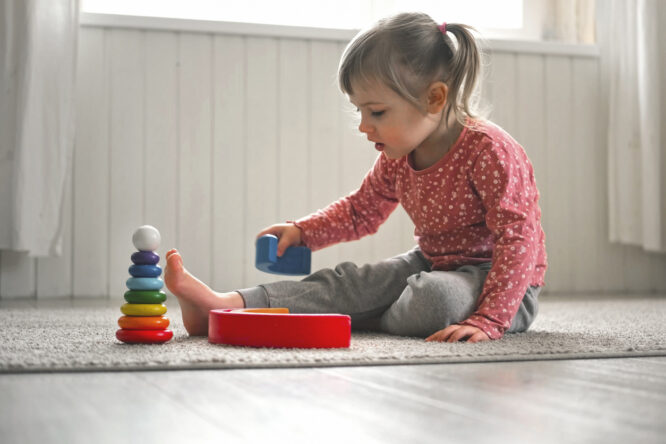
However, while family life is the foundation, nursery isn’t just a place to park kids while parents work. The environment, relationships, and routines they experience at nursery can have a surprisingly big impact on how they develop socially, emotionally, and even physically. Here’s why nursery might play a bigger role in a child’s early life than you’d expect.
1. It helps shape how kids relate to other people.

Nursery gives kids a chance to be around other children their age regularly, which helps them start figuring out social cues, sharing, and the basics of friendship. These small daily interactions lay the groundwork for empathy and cooperation. It’s not forcing kids to be social—it’s giving them a safe space to experiment with connection. As time goes on, they start to build confidence in how they interact, speak up, and respond to other people.
2. Routine helps young brains feel safe.

Predictable routines like snack time, tidy-up time, or story time help young children feel secure. When they know what’s coming next, they’re less likely to feel overwhelmed or anxious. This sense of structure helps their brains settle into a rhythm, which supports emotional regulation and self-trust. When they feel safe, they’re much more open to learning and exploring.
3. Exposure to language boosts early communication.
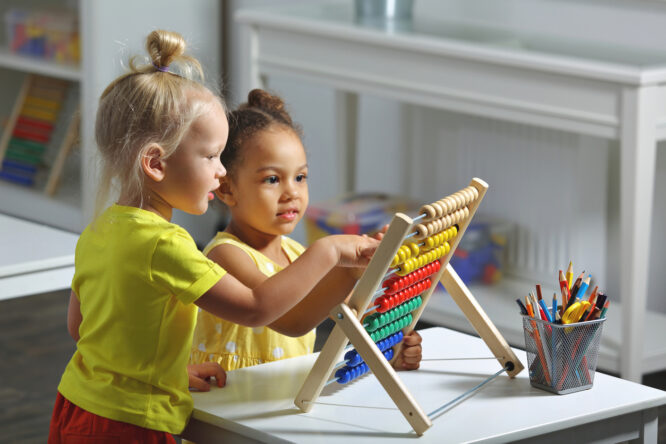
Children pick up language not just by being spoken to, but by being surrounded by it in rich and varied ways. Nursery introduces them to new words, songs, books, and ways of using language through play. This extra exposure can give their vocabulary and speech development a real boost, especially if they’re not hearing as many words at home. It’s not about flashcards—it’s about constant, natural interaction.
4. Play-based learning teaches real-life skills.
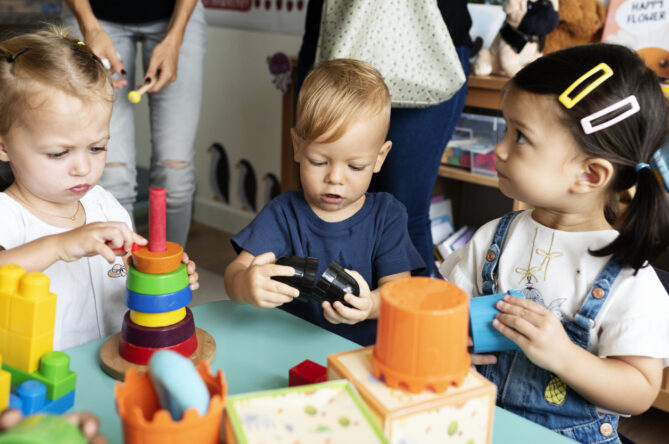
It might look like fun and games, and it is, but there’s a lot happening under the surface. Through imaginative play, building activities, and group tasks, kids start developing problem-solving skills, creativity, and independence. They’re not just being entertained—they’re practising how to think, decide, and work with other people. These moments are where confidence, resilience, and curiosity start to take root.
5. It introduces healthy separation from parents.

For a lot of kids, nursery is their first regular time apart from parents. That early experience of saying goodbye and learning that parents always come back is a key part of developing emotional security. It helps them slowly build a sense of independence in a safe and supported setting. Over time, they learn they can be okay on their own, and that’s a powerful lesson for life.
6. It teaches emotional expression through group living.

At home, kids usually get one-on-one attention. At nursery, they’re part of a group, which means they have to learn how to express needs, ask for help, and handle frustrations in different ways. This is where they start understanding emotions—not just their own, but other people’s too. Through gentle guidance, they learn that feelings are normal and manageable, which helps set the stage for emotional intelligence later on.
7. Early movement and sensory play support brain growth.
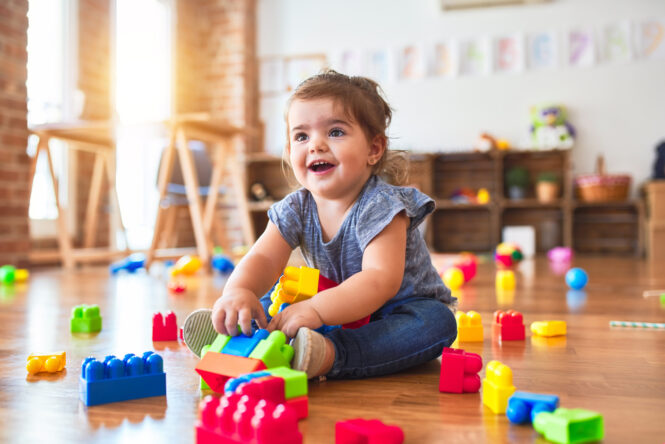
Many nurseries offer hands-on activities that go way beyond sitting still or colouring inside the lines. From crawling through tunnels to pouring sand and painting with fingers, these experiences fuel brain development. Physical and sensory play helps with coordination, focus, and even early maths and science skills. The more ways they get to explore the world with their whole body, the stronger those early connections become.
8. It encourages self-care and responsibility.
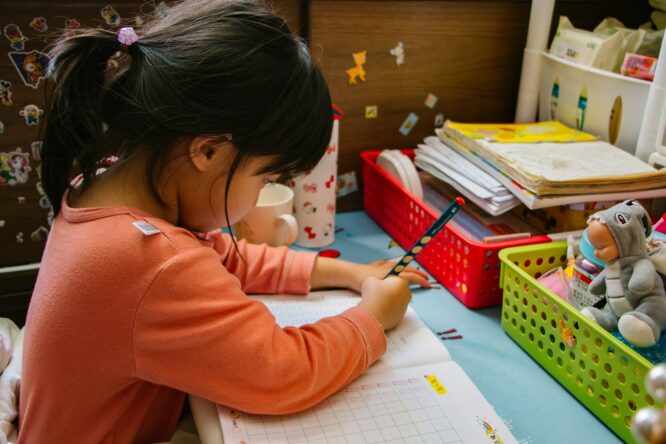
Simple tasks like washing hands, putting on a coat, or cleaning up after snack time teach kids responsibility in a gentle, age-appropriate way. They start to feel proud of what they can do on their own. This kind of early independence builds confidence. It shows them that they’re capable not just of playing and learning, but of taking care of themselves a little more each day.
9. Positive adult relationships build trust beyond the family.

When children build trusting bonds with nursery staff, it helps them learn that safe adults exist outside of their parents. These relationships support emotional security and help children feel seen and valued. When a child knows a grown-up will comfort them, cheer for them, or gently correct them, it deepens their ability to form healthy attachments. Those bonds lay the foundation for how they’ll relate to future teachers, mentors, and friends.
10. Group experiences support flexible thinking.
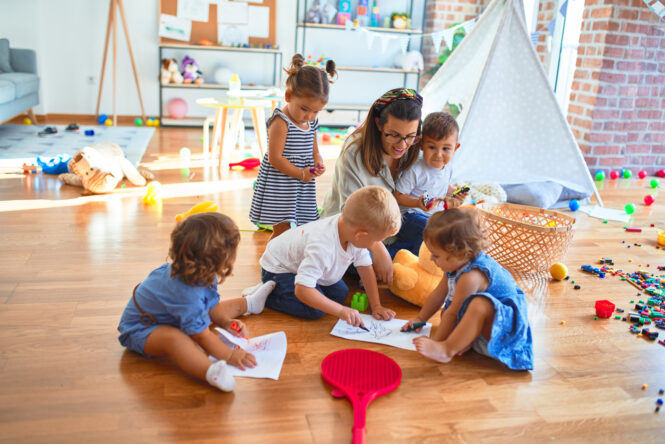
At home, kids might get used to things going a certain way. At nursery, they learn to adapt—waiting their turn, doing things in a different order, or seeing someone else’s idea win out. That flexibility helps reduce rigidity and frustration down the road. Learning that things can change, and that change isn’t always bad, is a huge developmental milestone.
11. They’re exposed to diversity early on.
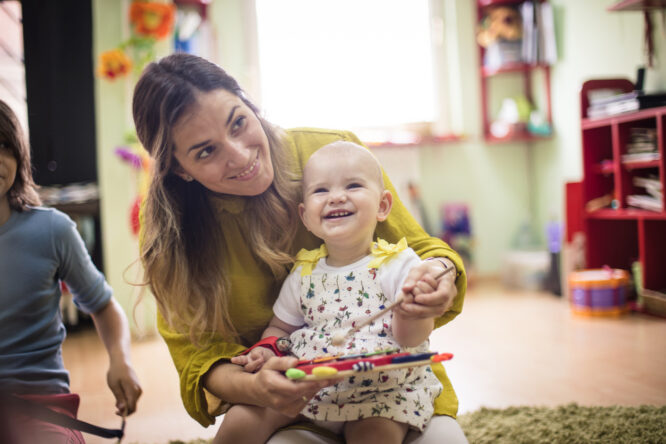
In a nursery setting, children often interact with peers from different backgrounds, languages, and family structures. This early exposure helps normalise differences and encourages open-mindedness from the start. It teaches them that the world is bigger than their home and that people come in all kinds of wonderful variations. That early sense of inclusion can shape how they treat other people for years to come.
12. They develop resilience by working through little challenges.

Whether it’s solving a puzzle, dealing with a disagreement, or learning how to put on their own shoes, nursery offers constant little moments of growth. These are chances to feel frustration, try again, and succeed. As time goes on, kids begin to understand that struggle doesn’t mean failure. It’s how they build grit, bounce back from disappointment, and take pride in small wins.
13. Positive feedback supports self-esteem early.

Nursery staff are often trained to notice and name children’s strengths in real time—whether it’s kindness, creativity, or effort. This kind of consistent, positive reinforcement matters. When kids are regularly told what they’re doing right, not just corrected when they slip up, they start to build a strong internal sense of worth. That kind of self-esteem sticks with them long after the nursery years are over.
14. It creates space for joyful learning.
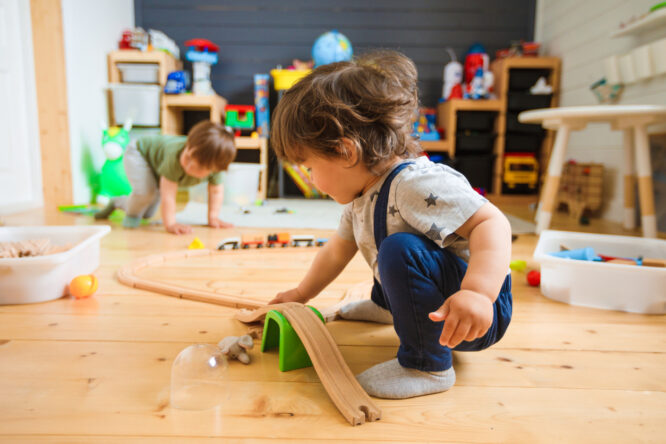
When children associate learning with fun, connection, and discovery, they’re more likely to carry that love of learning into school and beyond. Nursery helps learning feel exciting, not pressured or scary. This emotional connection to curiosity is just as important as any academic prep. If kids feel safe to explore and ask questions early on, they’re more likely to stay curious, confident, and engaged later in life.




